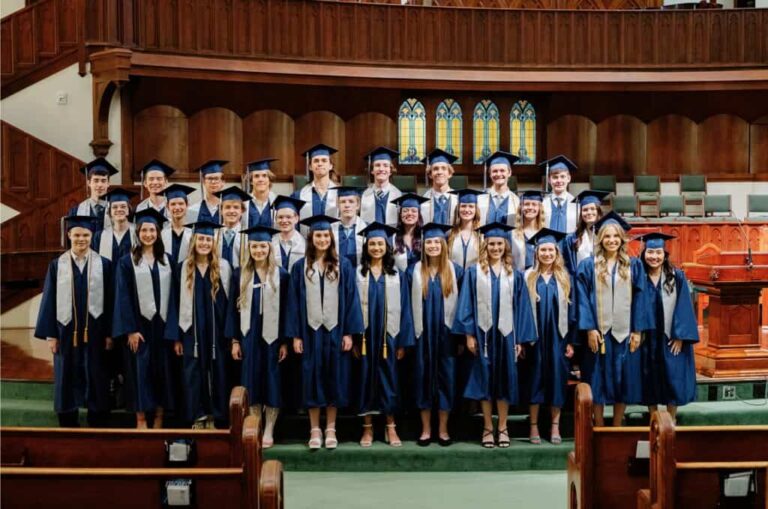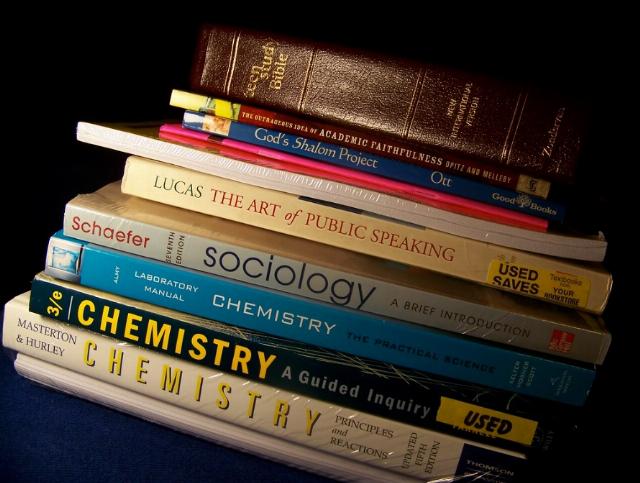
by Todd Wedel
The church has been prayerfully discussing disability since St. Augustine of Hippo wrote his City of God—and not exclusively for the purposes of providing better services, accommodations, and programming. Deeper yet still is the light that they shine on every other human. As Pope John Paul II describes,
The disabled person, with all the limitations and suffering that scar him or her, forces us to question ourselves, with respect and wisdom, on the mystery of man. In fact, the more we move about in the dark and unknown areas of human reality, the better we understand that it is in the more difficult and disturbing situations that the dignity and grandeur of the human being emerges.
Classical Christian schools have developed since the inception of the movement an increasingly deep, rich, formative educational depth and breadth. There has been growing awareness of and movement to shift from rigor as a number and weight of texts and measures to more restful patterns which honor the God-given nature of students as fully-fledged image bearers of God. Within that framework, there has been growing awareness of and movement to include and integrate students whose learning differences and needs are not typical.
At The Academy, these have resulted in healthy, winsome, gracious, and life-giving developments. In the past years, The Academy has created a clinician-run department of Educational Accommodations governed by 504-plans, TBRI-training, and on-site tutoring options. This program has flourished, as have the students, parents, and teachers involved as we seek to take as many different kinds of children as possible—all God’s people.
But even with these measures, The Academy still had students slipping through while noticing an uptick in students, who after application, would be diagnosed with autism. For these students, we rarely had any kind of answers—504-plans or otherwise—that would meet their needs educationally. And off they would go to another school. And we to say our prayers for a better way.
We were not meeting the high standard of embrace and inclusion Pope John Paul II held forth. We were not meeting the call to offer to all children we can the rich Classical Christian education they are heir to, as much heirs as any other students.
And then a providential opportunity. Twelve or so years ago, the Archdiocese of Oklahoma City (Roman Catholic) approved a new school start-up for children with autism—Good Shepherd Catholic School of Oklahoma City. At their prime, they were serving students at three different sites across the Oklahoma City area through a combination of academic instruction and ABA therapy.
In April 2023, all Good Shepherd parents received an email that despite the best efforts of many, Good Shepherd was to close, and Oklahoma City would yet again be without a faith-based option for neuro-diverse children.
An Academy staff member and mother of a Good Shepherd student immediately reached out to ask if The Academy would prayerfully consider a rescue. The Academy’s “yes” to these families was a rescue for them from an impossible situation. It was also a rescue of The Academy from a failure to envelop and enfold the least of these our Portrait of a Graduate calls us to initiate to embrace.
The result was the St. Joseph’s of Cupertino Program for Autism at The Academy of Classical Christian Studies. As far as we can tell, it is one of a kind. Type 2/3 autism is not on the traditional radar of classics studies—much less a program that is as fully integrated with neuro-typical peers as possible. The program began with nine students transferred from Good Shepherd. We have since grown to 11 students.
These students join us for Matins, recess, Noonday Prayers, and Evensong, in addition to House Meetings, lunch, and classes for integration with their neurotypical peers. They rotate through a three-competency focused schedule: Academics, ABA, and Life Skills. All are integrated with ABA-informed practices with ABA-informed teachers under the guidance of a partnering BCBA professional.
The academic focus is a tailored Classical Christian education. The distinctions are the need for additional scaffolding and consideration of academic and capacity needs. We are still working to develop what seems a unique offering of the education we value so greatly to these students we value even more.
The results have been miraculous. We have had nonverbal students who by midyear are engaging verbally with teachers and peers. We have had students who came to us without reading ability read as full participants in our Lessons and Carols service to the joy and acclaim of our whole community.
More than that, our neurotypical students and their families have described an overwhelming cultural win that none of us would have known to pray for. Some have even described the resulting culture as ‘finally complete.’ It would seem that our neuro-typical students were the ones most to benefit from this program integration. Families across the city want into the program, are praying that it spreads to our other two campuses, and want to know how they can get involved, volunteer, and donate.
It is in every way remarkable. We continue to seek to see the even greater miracles God will manifest as He calls us with these among us as Aslan calls “further up and further in.”
Todd Wedel serves as the director of St. Joseph’s of Cupertino Program for Autism at The Academy of Classical Christian Studies in Oklahoma City.





